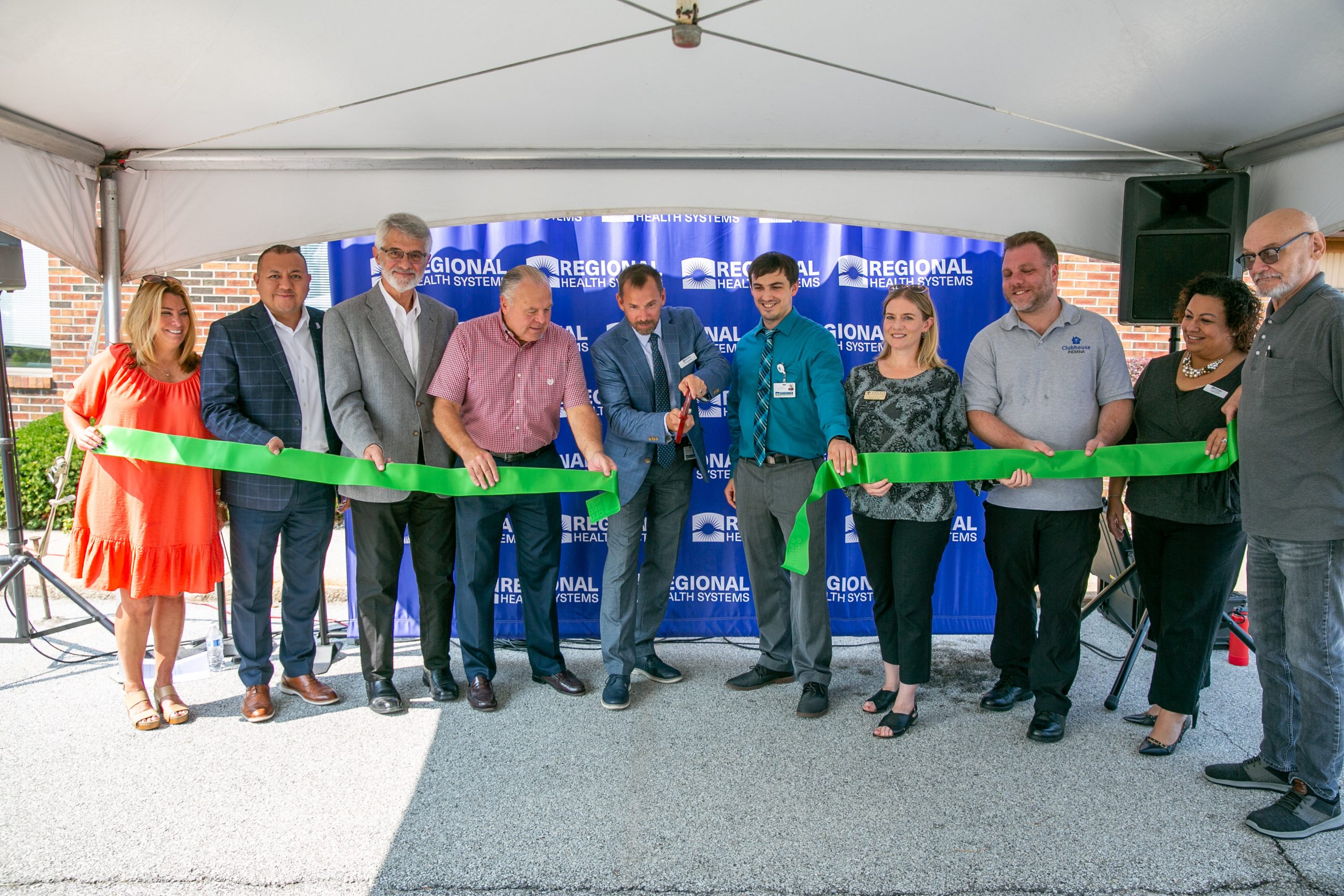
Press Release: New Beginnings Clubhouse celebrates building expansion with ribbon cutting
Sep 16 2022

Duane realized in his mid-30s when he was drinking every day that he had lost control.
His marriage had failed. He was missing work more than he should, isolating himself and becoming more irritable. Physically, his body was taking a beating. He was sleeping poorly.
“And, spiritually,” Duane recalled, “I was shot through.”
He knew he wanted to stop drinking alcohol but was certain he couldn’t.
Duane—only his first name is being used to protect his privacy—called his parents and told them he had a drinking problem. Then he leveled with his doctor, who connected Duane with Regional Health Systems’ addiction treatment program in Merrillville.
“I think it was important for me to get out of my house and get into a structured environment like Regional provided,” Duane recalled in a recent interview, “and having somebody there working with me on a daily basis to get disconnected from my normal routine and develop a new routine. That’s what Regional did for me.”
His story is particularly compelling in September, National Recovery Month. Established in 1989 by the Substance Abuse and Mental Health Services Administration, the observance promotes and supports “new, evidence-based treatment and recovery practices, the nation’s strong and proud recovery community and the dedication of service providers and communities,” according to SAMHSA’s website.
National Recovery Month is something of a pre-milestone for Duane. One month later, in October, Duane will mark 11 years sober.
Staying sober that long is itself a noteworthy accomplishment. But Duane views his sobriety in a more generous context. Every third Monday, he attends Regional’s Bridge meetings, in which 6-12 inpatient clients gather to discuss and navigate the gap between treatment and recovery.
Duane, a Northwest Indiana resident, has been volunteering at the meetings since 2013, when a counselor asked if he would visit. In Bridge gatherings, Duane and others who are sober and working a 12-step program share a little about their background—that’s a story all the participants already understand fully—and spend most of their time discussing what they did to stay sober after treatment.
“Anything I could do to help somebody recover I’ll do,” Duane said of his motivation for volunteering for nearly a decade. “And it helps keep me green; it reminds me of where I came from and where I don’t want to go back to, which is important for me. I don’t want to forget where I came from. It’s like my first AA sponsor told me: don’t forget the pain and misery that got you here.”
At his low point, Duane enrolled in Regional Health Systems’ residential addictions treatment program, he said, because he feared that an outpatient format, which would allow him to return home every night, would lead him to resume drinking. He worked through 10 days of residential treatment, 10 days of outpatient and has been sober since.
His commitment to a 12-step program, which he learned about through Regional Health Systems, has been vital to staying sober, he said. For the program to be effective, a person must possess a strong desire to succeed, find a power greater than oneself and “do the legwork” of the program, Duane said.
That means, in part, attending 12-step meetings frequently, finding a sponsor, staying in contact with other recovering alcoholics and remaining vigilant.
He sticks with his program and has made the steps a substantial part of his daily routine. The result is that his obsession with drinking faded long ago, and he has a whole host of new friends he didn’t have a decade ago.
Duane said he wants to continue attending the Bridge meetings for as long as he can. He feels he needs to.
“I can give back what was given to me,” Duane said. “I just want to let them know that it can be done, because when I was out there by myself, I never thought I could do it, but yes, it can be done.”
Click for more information on Regional Health Systems’ comprehensive treatment options.